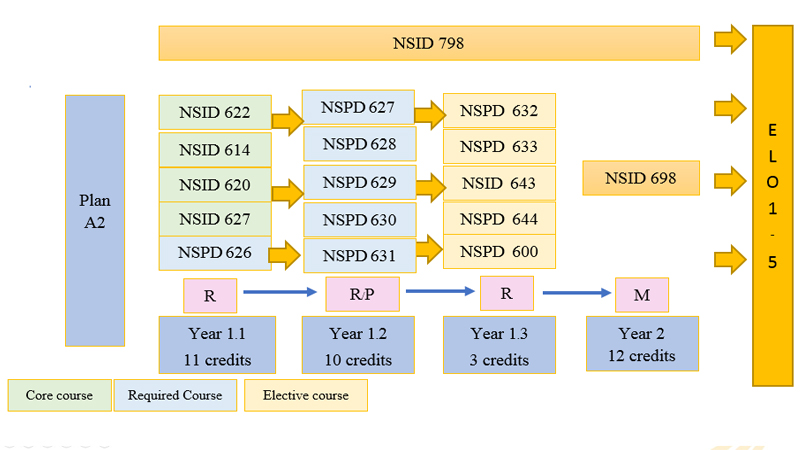Master of Nursing Science Program in Pediatric Nursing
Program Philosophy
The Master graduates in pediatric nursing are expected to have competencies in nursing care for children with at-risk and complex health problems by integrating relevant theoretical concepts, empirical evidence to promote health outcomes with considering ethics, professional ethics. They are able to develop innovations and conduct research that respond to child health problems with the competence to work multidisciplinary and use information technology appropriately.
Program Objectives
According to changes of social and children’s health problems, there is a greater number of at-risk children and children with complex health problems who require continuing care in hospitals, home and communities. The program plan to boost the Master students to have advanced pediatric nursing care since newborn to adolescents with the condition of healthy, at risk, and complex health problems. Healthy children require continued health promotion and risk reduction in order to prevent health problems or illnesses, as well as with complex health problems required care management for acute, critical and chronic conditions. Based on the feedback from stakeholders such as the employers, instructors, graduates, current students, and alumni, they expected the Master graduates to become leaders in quality improvement of pediatric nursing. The graduates must be able to work in a multidisciplinary team and use information technology effectively. The revised MNS program composes of Plan A1 (research only) and Plan A2 (coursework and research) with a total of 36 credits. The objectives of the program for academic year 2022-2026 are as follows:
- Having moral and ethical both academic and professional nursing.
- Having in-depth knowledge in substantive content of pediatric nursing, relevant disciplines, and theories in pediatric nursing practice.
- To be able to integrate knowledge derived from nursing science, related disciplines, and evidence in fostering innovation and quality improvement in healthcare services, as well as conduct pediatric nursing research.
- demonstrates leadership, collaborative teamwork, and accountability for oneself as well as the public
- To be able to effectively communicate with health care professionals, use information technology; and analyze, interpret manage data appropriately.
Expected Learning Outcomes of the Programs
The ELOs of the revised curriculum of the program for academic year 2022-2026 are as follows:
ELO1 Integration of knowledge in various sciences and empirical evidence to address health issues and promote health outcomes in child, adolescent and families by adhering to morality ethics and professional ethics
ELO2 Develop innovations for the quality of child and adolescent nursing using evidence
ELO3 Conduct research related to health promotion and complex health problems in child and adolescent on the basis of research ethics
ELO4 Apply digital technology and information in communications and exchange knowledge and dissemination of nursing research
ELO5 Demonstrate leadership and teamwork with other health care professionals in managing health problems of child and adolescent and their families
Study plan

Alignment of each course and Program Learning Outcomes (ELOs)
More Information
- - Faculty of Graduate Studies, Mahidol University
- Department of Pediatric Nursing, Faculty of Nursing, Mahidol University
Copyright © 2024-Faculty of Nursing, Mahidol University. All rights reserved. Webmaster: nswww@mahidol.ac.th



